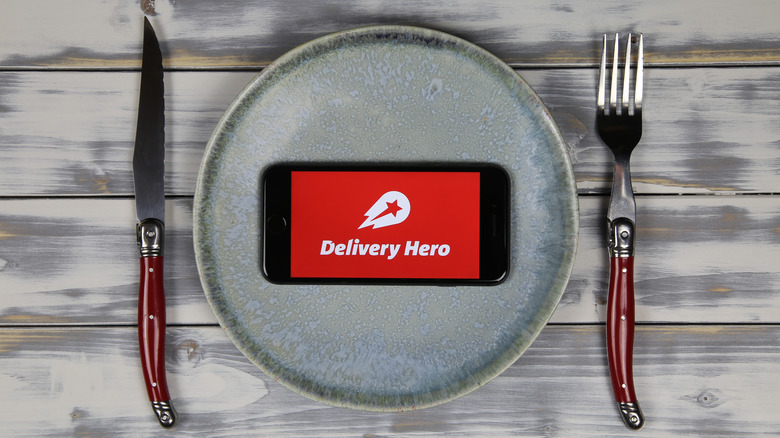Why Investors Are Backing Away From The Grocery Delivery Market
During the height of the pandemic, how likely were you to log on to Instacart or Amazon Fresh instead of venturing out to the grocery store? If you're like many Americans, your answer might be "pretty likely": According to the United States Census Bureau, retail e-commerce boomed during the COVID-19 pandemic, with online sales rising a whopping 43% in 2020 — from $571 billion in 2019 to more than $815 billion that following year.
With online retailers seeing a bonanza, investors of course took notice, pouring billions of dollars into what are referred to as "quick commerce" grocery companies (such as the U.S.'s Gopuff and Germany's Delivery Hero) which promise to deliver goods in as little as 15 minutes. But according to Reuters, with lockdowns easing and consumers returning to in-person shopping, some of these companies are tumbling, and fast — and, as a result, investors are fleeing the scene.
The return of in-store shopping isn't the only issue
Last month The Sydney Morning Herald reported Australia's Send — whose founder Rob Adams told the outlet that capital had been easy to come by last year — went into administration (a legal process similar to bankruptcy). The U.S.'s Gopuff is also facing financial troubles: As recently as January, per the New York Post, the company was eyeing an initial public offering and a valuation of $40 billion, but by March investors were selling stakes for as little as $15 billion.
But according to Reuters, a return to in-person shopping isn't the only reason quick commerce (or q-commerce) companies are flailing: It's also consumers' more precarious economic circumstances brought on by record inflation. This is naturally leading shoppers to cut spending, seeking out better deals on their groceries (via Morning Consult). "The current macroeconomic climate has become incredibly challenging, with very little visibility of when things will improve," Britain-based q-commerce company Zapp told the outlet.
We're likely to see a consolidation of q-commerce brands
Though the q-commerce industry is in trouble, experts estimate some are likely to survive, considering the convenience they offer. The companies that weather the storm will have to adapt, Larry Illg, chief executive of online food businesses at technology investor Prosus NV, explained to Reuters. "We are seeing slower rollouts of new dark stores, lower levels of marketing investment, and diminished discounting from competition. So aggregate growth is slowing down, but economics for the space are healthier."
Investors seem to think the current shakeup will eventually be a good thing for those q-commerce companies that are able to forge ahead: While many will end up biting the dust, those that remain will be in a stronger financial position. "Every country will have multiple players, but do they need six? Probably not," Sajal Srivastava, co-founder of the Silicon Valley-based investment firm TriplePoint Capital, told Reuters. "Do they need two or three? Yes, and I think that's where it will come out."


